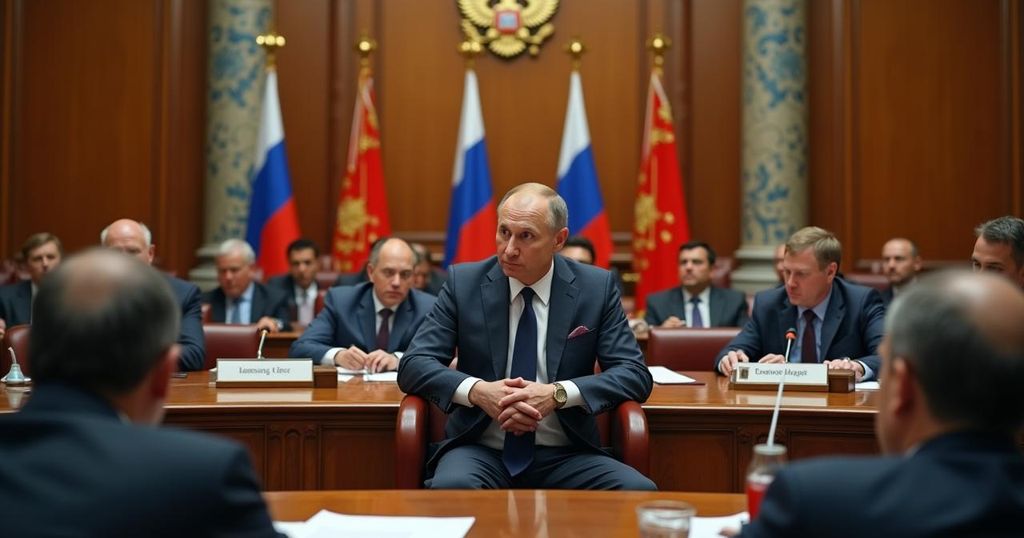Russia’s State Duma Enacts Stricter Penalties for Armed Rebellion

The State Duma of Russia has approved a bill imposing harsher penalties for armed rebellion, allowing for life imprisonment for certain leaders, following the Wagner Group’s insurrection in June 2023. The bill introduces varying degrees of liability and offers exemptions for cooperation with authorities.
The State Duma of Russia, the lower house of parliament, has recently approved the first reading of a legislative bill that introduces stringent penalties for individuals involved in armed rebellion. This bill allows for a maximum punishment of life imprisonment for organizers and active participants in such uprisings, according to an announcement made on Tuesday. Under current legislation, those found guilty of organizing or participating in an armed rebellion face prison sentences ranging from 12 to 20 years. The new legislation classifies participation in armed rebellion into three categories of liability: individuals who organize or lead a rebellion would face imprisonment for 15 to 20 years, while those who merely participate could receive sentences from 12 to 20 years. Life imprisonment is reserved for leaders whose mutinies lead to fatalities or other significant repercussions. Furthermore, the bill stipulates that individuals charged with mutiny may avoid criminal consequences by cooperating with authorities to mitigate any damage to the state’s interests, provided such cooperation is both voluntary and prompt. This amendment was initially proposed in July, following the events of June 2023 when the Wagner Group, headed by co-founder Yevgeny Prigozhin, instigated a brief armed insurrection. During this uprising, Wagner mercenaries captured the headquarters of Russia’s Southern Military District in Rostov-on-Don and threatened a ‘March of Justice’ towards Moscow, aimed at ousting then-Defense Minister Sergey Shoigu. The rebellion ended abruptly after negotiations facilitated by Belarus’s President Alexander Lukashenko, leading to an agreement for Prigozhin and his forces to retreat to Belarus. Despite the lack of immediate legal repercussions for the Wagner fighters involved, Prigozhin and several key figures perished in a plane crash in the Tver region two months later.
The proposed legislation emerged as a response to the Wagner Group’s uprising, reflecting the Russian government’s intensified efforts to ensure stability and control following a significant and public challenge to its authority. The Wagner Group, a private military entity with close ties to the Kremlin, had previously operated with considerable autonomy but became a focal point of national security concerns during and after the rebellion. The Russian government’s actions demonstrate a desire to deter future insurrections and signal zero tolerance for organized threats to state security. The context of this bill is pivotal, as it not only addresses past incidents but also aims to establish a legal framework that discourages similar unrest in the future and reinforces governmental authority.
In conclusion, the State Duma’s passage of the bill to impose harsher penalties for armed rebellion reflects the Russian government’s proactive stance on maintaining order and deterrence against potential uprisings. By distinguishing varying degrees of participation and offering exemptions for cooperation with the state, the legislation seeks to navigate the complexities of rebellion while reaffirming the state’s commitment to safeguarding its interests. The implications of this bill are profound, indicating an escalation in the legal and punitive measures that the Russian government is willing to adopt to prevent future challenges to its authority.
Original Source: novayagazeta.eu








